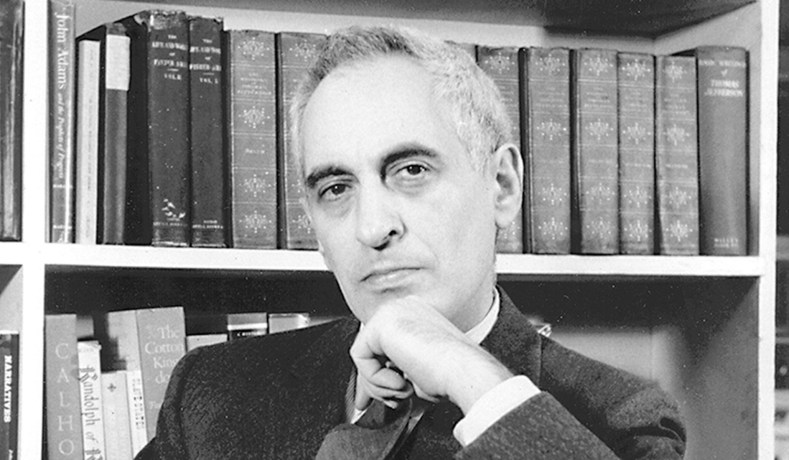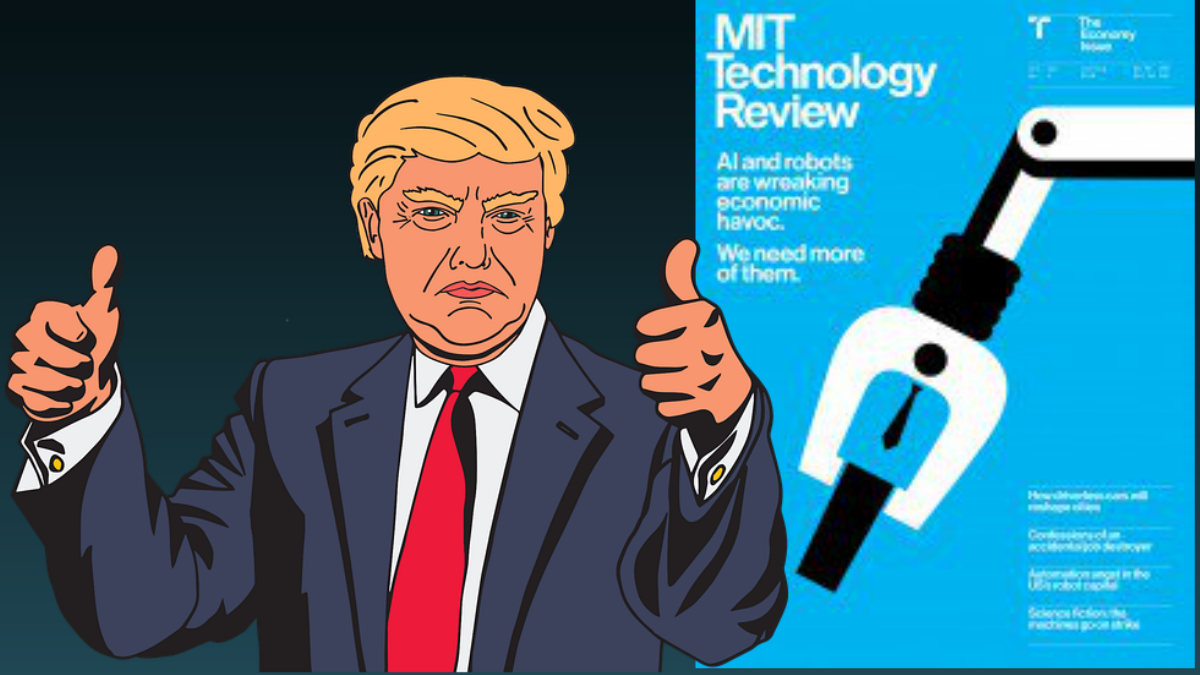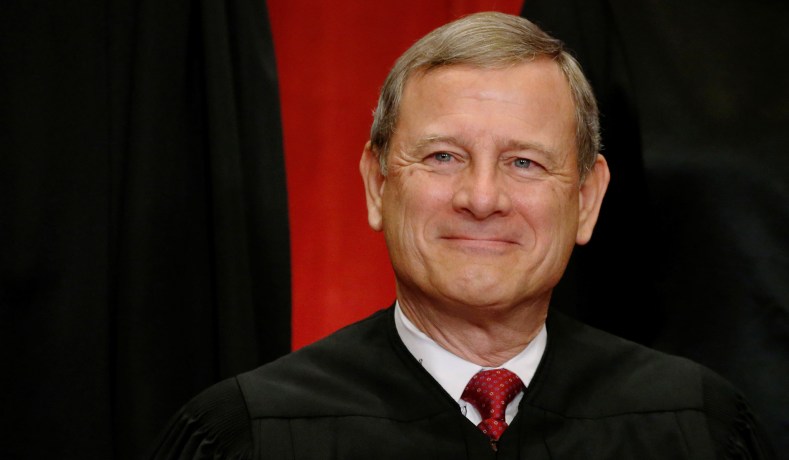

It is a tool, not a philosophy; can the Right still use it?
Not long ago, I was asked by a radio host whether William F. Buckley Jr. would recognize today’s Republican party. In part because I am sometimes a little preemptively exhausted by WWWFBD questions, I offered a smart-aleck response I think Bill might have liked.
“Look,” I said, “Charlton Heston recognized the Statue of Liberty at the end of The Planet of the Apes. Recognition is not all that high a bar.”
That was probably a little unfair, but the point is sound. Things change. Times change. Even when you stand athwart History yelling “Stop,” sometimes History refuses to listen.
What’s not supposed to change are principles. Of course, this isn’t strictly true, either. An essential part of moral progress is stripping timeless principles away from the time-bound ones. The Code of Hammurabi was an important moral advance on what came before it, but most would agree that it’s good we moved on from the idea that fathers could sell their kids as slaves or cut off the hands of their children if they struck their father. The timeless principle buried amid the barbaric baggage is the idea of parental authority. But, like most worthy principles, it is limited by other, competing principles.
Which brings me to the topic at hand. I was recently asked to speak at the Philadelphia Society’s annual meeting on, among other things, the question of fusionism and whether it still holds as the foundation of modern American conservatism.
Fusionism was an idea championed most forcefully by Frank Meyer, the longtime literary editor of National Review. He argued that libertarianism — then often called “individualism” — and traditionalism are the twin pillars of conservatism and, more broadly, of a just and free society. The chief obligation of the state is to protect individual liberty, but the chief obligation of the individual is to live virtuously. Coerced virtue is tyrannical: Virtue not freely chosen is not virtuous. Or as Meyer himself put it: “Truth withers when freedom dies, however righteous the authority that kills it; and free individualism uninformed by moral value rots at its core and soon brings about conditions that pave the way for surrender to tyranny.”
Now I largely agree with this. But as both a philosophical and a prudential matter, we understand — just as Meyer did to some extent — that freedom is a concept with limits, that each principle must be circumscribed at the extremes by other important principles. A society where literally everything is permitted isn’t free except according to some quasi-Hobbesian or fully Rousseauian or Randian theory about the freedom inherent in a state of nature or an anarcho-capitalist utopia. Some forms of authority must be morally permissible, even to the lover of liberty.
“Virtue” is a similarly capacious term, and without some forms of external authority, competing understandings of virtue can multiply like unchecked cancer cells. Government, but not only government, needs to have some role in supporting some forms of virtue — and freedom — over other forms. It’s easy to imagine examples of how the state can support freedom, given our understanding of the First Amendment. But it also supports virtuous behavior. Paying one’s debts and honoring contracts is a virtue in itself. But the government can also help force the issue when virtuous intent is absent.
Meyer and M. Stanton Evans, the other great fusionist proselytizer, argued that since compelled virtue isn’t virtuous, the choice to make virtuous decisions will always rest with the individual. Again, this is largely true. Virtue, like religious salvation, is an individual affair. You can’t live off someone else’s good deeds. But no man is an island, either. Decisions made by others can profoundly affect the ease or difficulty of one’s pursuit of virtue or salvation. If I tell my daughter that her mother and I will not punish her if she uses drugs or ignores her responsibilities, I’m making it harder for her to live a decent, virtuous life. She will have the ultimate choice, but as an authority over her, I can make some choices easier or more difficult.
L. Brent Bozell Jr. dissented from fusionism over this very point. Writing in National Review in 1962, he pointed out that humans in every society, regardless of its organization, are always free to make virtuous decisions. What differentiates various regimes isn’t the presence of that choice but the penalties or rewards for the decisions we make:
The Soviet citizen is every bit as “free” to earn salvation as his American counterpart; he will “prove himself,” or fail to, in an area that is beyond the reach of the KGB. And while there is nothing arresting about this presumption — surely it is among the most ordinary of theological common-places — it must have tremendous implications for political theory. For if moral freedom is beyond the reach of politics, surely politics has better things to do than making the preservation of moral freedom its chief preoccupation. [Bozell’s italics.]
For Bozell, the issue wasn’t so much that freedom is bad but that it’s not as important as the fusionists claimed it to be. Societies need institutions to make virtue easier, even if they might conflict with liberty. He argues:
If freedom is the “first principle” of the search for virtue, if as Meyer writes, . . . it is “the precondition of a good society,” then, by definition, there is no superior principle that can be invoked, at any stage, against the effort to maximize freedom — there is no point at which men are entitled to stop hauling down the “props” which every rational society in history has erected to promote a virtuous citizenry. [Bozell’s italics.]
There is another problem. Freedom itself — at least the specific kind of classically liberal freedom that informed nearly all sides of the fusionism debate — depends on specific notions of virtue. Both capitalism and democracy are rational systems, but they depend on a host of pre-rational commitments and institutions. Some of these commitments are familiar to anyone who has read Max Weber’s Protestant Ethic and the Spirit of Capitalism or Adam Smith’s Wealth of Nations and Theory of Moral Sentiments: Thrift, diligence, honesty, respect for the rule of law, and the desire to be seen as a decent person are just a few of the things that make capitalism work. Patriotism, respect, pluralism, tolerance, etc. are indispensable to keeping democracy — or, if you prefer, liberalism — from degenerating into autarky or authoritarianism. Virtue is more than just these things, but these things are all part of virtue. Many nations have embraced formal constitutional democracy or the free market only to see it fail to take root with the people themselves.
For these and other reasons, I think fusionism ultimately doesn’t work as a seamless and consistent political philosophy. The late Murray Rothbard, a cantankerous and often vitriolic critic of conservatives and even many libertarians, is not someone I’m accustomed to quoting favorably, but he stated this objection well: “I believe that fusionism is a ‘myth’ in the Sorellian sense, an organizing principle to hold two very disparate wings of a political movement together and to get them to act in a unified way. Intellectually, the concept must be judged a failure.”
On his own terms, Rothbard had a point, but even so he was a bit too harsh.
First, Georges Sorel knew that his myths were lies. (People can debate whether they were noble lies.) There is no reason I know of to ascribe bad faith to Meyer, Evans, or other fusionists.
Second, and more important, while fusionism fails on Rothbard’s terms, Rothbard’s were the wrong terms. There’s nothing wrong with coming up with a construct by which intellectual libertarians and conservatives could find common cause in an important project. Anti-Communism was the binding framework behind much of modern conservatism. But there were many reasons to hate Communism (as even Rothbard would attest). Finding a usable synthesis for a broad coalition of intellectual, political, and moral perspectives and interests is what serious movement builders do. And Bill Buckley was nothing if not a serious movement builder.
Hence, a better way to think about fusionism is as a useful tool for identifying where principles are in conflict. Meyer himself considered fusionism a shorthand for a tension that lies at the core of Western culture.
Here’s how I think about it: When presented with a political or philosophical challenge, the conservative, particularly the conservative of the Buckleyan variety, asks two important questions: Does the challenge threaten freedom? Does it hinder the practice of virtue? And he asks the same questions about the proposed response to the challenge.
Say a foreign power buys bogus ads on Facebook to inflame sectarian or racial passions in hopes of fomenting domestic discord. One can easily see how this might threaten freedom or virtue (not to mention other values, such as order and sovereignty). But so could many possible remedies — from overly restricting free speech to requiring certain kinds of speech. In short, fusionism is a balancing test. A defining feature of conservatism — in some sense the defining feature — is comfort with contradiction. Conservatives — unlike libertarians, socialists, and extreme nationalists — do not believe that every answer can be reduced to a single principle or factor. The conservative is not trapped in what Chesterton called “the clean and well-lit prison of one idea.”
Rothbardians, Randians, and other hyper-individualists are often inmates of their single idea, refusing to temper it with others. “An individualist,” Ayn Rand wrote, “is a man who says: ‘I’ll not run anyone’s life — nor let anyone run mine. I will not rule nor be ruled. I will not be a master nor a slave. I will not sacrifice myself to anyone — nor sacrifice anyone to myself.’” When thoughts are presented in such stark light, all nuance is lost in shadow. It is fine and good to say one will be neither master nor slave, but what about brother or sister, father or son? What about neighbor, friend, or simply fellow citizen? Social solidarity, whether at the intimate level of the family or the broad level of the nation, requires a vastly complex ecosystem of obligations and dependencies that fall to the cutting-room floor when we apply the razor of hyper-individualism.
Meyer grasped this, which is why he did not talk of fusionism as a philosophy but as a tradition, or part of one. Traditions, which evolve from the ground up around the contours of the human landscape, contain within them countless conflicting and contradictory strains. The American tradition, as Tocqueville most famously chronicled, is a stew of both extreme individualism and remarkable associationism. Visitors such as Tocqueville have an easier time seeing this than do native-born Americans themselves. When you grow up in a tradition, that tradition becomes, if not entirely invisible, then certainly recessed into your background assumptions about how the world works. It becomes a kind of dogma, a cluster of pre-rational and sub- or semiconscious presuppositions that form the habits of the heart.
Meyer understood that the strongest metal is an alloy. Steel is stronger than iron because of its blended nature. The Western tradition from antiquity onward was a conversation between two imperatives, freedom and order, liberty and virtue. Prior to the Enlightenment, these imperatives were less of a tension and more of a process. Virtue was the way in which one achieved liberty, rightly understood. This conversation, Meyer wrote, was a “dialectic between doctrines which emphasize opposite sides of the same truth.”
When intellectuals such as Bozell and Rothbard emphasize one side of the coin, each side appears as a negation of the other. But, in reality, “on neither side is there a purposeful, philosophically founded rejection of the ends the other side proclaims,” Meyer wrote. “Rather, each side emphasizes so strongly the aspect of the great tradition of the West which it sees as decisive that distortion sets in. The place of its goals in the total tradition of the West is lost sight of, and the complementary interdependence of freedom and virtue, of the individual person and political order, is forgotten.”
In short, tradition is not a philosophy but the arena in which competing philosophies shape the civilization around them. Libertarians and conservatives, despite all of their disagreements, can find common ground because they share some assumptions that Marxists, Randians, and others do not. Seen this way, of course, fusionism cannot be a philosophy, but it succeeds as a tool, a means of balancing competing goods in the real world.
And it’s dying.
The libertarian individualists of the 1960s were more virtue-oriented than they appreciated. The traditionalists of the period were more concerned with freedom than they often let on. And many of the arguments about fusionism amounted to the sorts of squabbles we associate with the faculty lounge; they were so vicious because the stakes were so low.
Meanwhile, the more relevant debate was between populists and elitists. I say “elitists,” not “elites,” because this debate was also fought almost entirely among elites as well.
The battle over Joseph McCarthy is instructive. It is today remembered as a contest between the Right and the Left — and it was certainly that. But it was also a major intra-conservative flashpoint. On one side were Buckley, Bozell, Willmoore Kendall, and other anti-Communists who saw McCarthy as more right than wrong and a kind of Joan of Arc of the populist forces of “real America.” Kendall, Buckley’s onetime professor and longtime mentor, was in every way an elite intellectual. A Rhodes scholar at Oxford and combative political-science professor at Yale (until his combativeness became so intolerable that Yale bribed him to give up tenure and quit), Kendall was an unapologetic majoritarian who believed that the masses were the virtuous citizens of “We the People.” He described himself as an “Appalachians-to-the-Rockies patriot.” His defenses of McCarthy in The Conservative Affirmation, and by extension in WFB and Bozell’s McCarthy and His Enemies, which Kendall helped edit, were as full-throated as anyone’s.
Meanwhile, other titans of conservatism were, at best, noncommittal about McCarthy and McCarthyism. James Burnham saw pluses and minuses in McCarthy himself but believed that McCarthyism was “an invention of Communist tacticians.” Russell Kirk never embraced McCarthy. In a brilliant essay for The New Leader, Will Herberg decried McCarthyism and argued that it was the culmination of politics’ working outside constitutional government:
“McCarthyism” is the logical outcome of the system of government by rabble-rousing initiated in the first years of the New Deal — only, in “McCarthyism,” the rabble-rouser is not a cultured and aristocratic gentleman, but a crude and rather primitive plebeian, not a Pericles but a Cleon. McCarthy, like Roosevelt, wants action and goes directly to the people to get it. McCarthy, like Roosevelt, is impatient with the restraints and limitations of what are called proper constitutional channels. When McCarthy wants a change in the Administration’s foreign policy, he does not, as Senator, raise it for deliberation in the Senate; he appeals to the people to swamp the White House with letters and telegrams. He rouses the “rabble” for direct action, in contempt of constitutional channels and procedures. But how far different is that from the mode of operation of the Roosevelt regime in the 1930s?
Conservatism, and America generally, got through the McCarthy period all right, in large part because elite institutions continued to play their role in constraining and channeling popular uprisings — though, as the 1960s demonstrated, there were also considerable failures. On the right, the competing elite factions disagreed about the extent to which populism should drive conservative political projects, but it was always assumed — if not always stated — that elites in the form of statesmen, intellectuals, etc. would still play an important role in channeling popular passions toward productive ends.
That system has largely broken down. The Internet and cable television deserve generous portions of blame, as do our educational system and the media generally. America is not immune to the tendency toward populism when high levels of immigration meet low or nonexistent levels of assimilation. The market itself is part of the problem, too. Division and anger are easily monetized, while moderation and prudence struggle to find a customer base.
The hollowing out of the political parties as robust mechanisms for channeling popular passions has led to outside institutions’ picking up the slack. The New York Times hectored its readers to call their elected representatives and demand they vote down the GOP tax bill. Talk radio, cable news channels, and various PACs and interest groups have replaced the parties as the main educators of voters and drivers of turnout, and they have done so by stoking partisan anger, often collecting a tidy profit in the process. Much of the conservative movement has become a de facto consultant class for the Republican party, and any effort to provide intellectual correction from a critical distance is deemed an act of betrayal or heresy. What was once a healthy tension has become a kind of co-dependence, and in some instances little more than a racket.
When National Review published its now-infamous (and wildly misunderstood) “Against Trump” issue on the eve of the Iowa caucuses, the response from many leading conservatives and right-leaning TV personalities was, often literally, “Who is National Review to tell us how to vote?” Never mind that National Review, like many opinion journals, has done precisely that since its founding.
Simply put, we live in a populist moment when many of the gatekeepers have either abandoned their posts to join the mob or stand lonely vigil at gates that are no longer needed because the walls are crumbling. To borrow a phrase from Julien Benda’s landmark Treason of the Intellectuals, our age is marked by the “political organization of hatreds.” What McCarthy did with letters and telegrams, President Trump does with Twitter.
In this climate, the old balancing tests of fusionism have become relics of pointy-headed intellectuals, “elitists,” “globalists,” and the dreaded “establishment.” In their place we have erected a “clean and well-lit prison of one idea.” On the left, that idea is the old socialist dream. On the right, for some it is nationalism, but for most it is simply Trump. If he is for it, we are for it. If he is against it, we are against it (and vice versa for the Left).
The situation is not sustainable, but that doesn’t mean what comes next will be better. It will be recognizable, to be sure, but recognition is not a very high bar.



